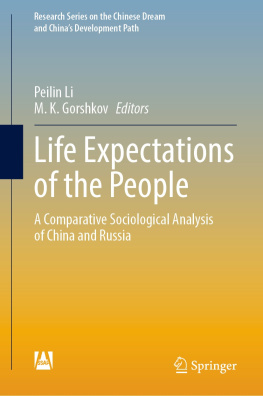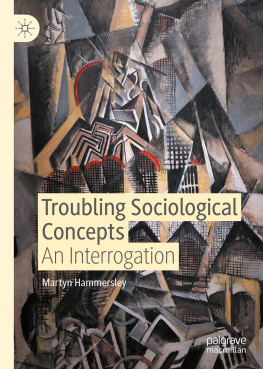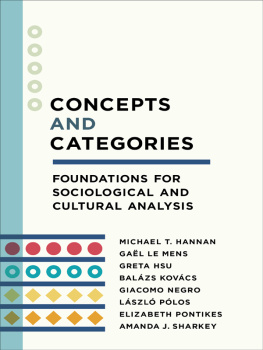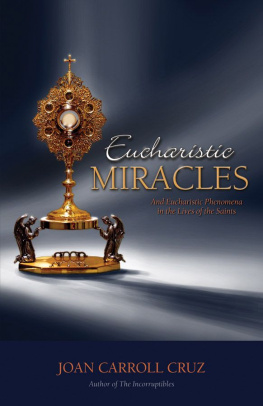Sociological Analysis of Aging
The Gay Male Perspective
Sociological Analysis of Aging
The Gay Male Perspective
J. Michael Cruz
First published by
The Haworth Press, Inc.
10 Alice Street
Binghamton, N Y 13904-1580
This edition published 2011 by Routledge
Routledge
Taylor & Francis Group
711 Third Avenue
New York, NY 10017
Routledge
Taylor & Francis Group
2 Park Square, Milton Park
Abingdon, Oxon OX14 4RN
2003 by The Haworth Press, Inc. All rights reserved. No part of this work may be reproduced or utilized in any form or by any means, electronic or mechanical, including photocopying, microfilm, and recording, or by any information storage and retrieval system, without permission in writing from the publisher.
TR: 3.30.04
PUBLISHERS NOTE
Identities and circumstances of individuals discussed in this book have been changed to protect confidentiality.
The publisher has gone to great lengths to ensure the quality of this book but points out that some imperfections from the original may be apparent.
Cover design by Lora Wiggins.
Library of Congress Cataloging-in-Publication Data
Cruz, J. Michael.
Sociological analysis of aging : the gay male perspective / J. Michael Cruz.
p. cm.
Includes bibliographical references (p. ) and index.
ISBN 1-56023-453-9 (hard)ISBN 1-56023-454-7 (soft)
1. Aged gay menSocial conditions. 2. Aged gay menTexasSocial conditions. I. Title.
HQ76.14.C78 2003
305.26dc21
2003001804
For Minerva
ABOUT THE AUTHOR
J. Michael Cruz, PhD, is a native Texan now living in Maine. His training in sociology has equipped him to study inequality and the social injustices experienced by persons based on gender, race/ethnicity, social class, age, and sexual orientation. Within this framework, Dr. Cruz studies three specific research areas: aging gay men, gay male domestic violence, and HIV/AIDS.
Dr. Cruz is an Assistant Professor of Sociology at University of Southern Maine and a Faculty Associate of the University of Maine Center on Aging.
CONTENTS
Margaret Cruikshank
Gerontology as a field has been slower to recognize cultural diversity and to welcome the fresh perspectives made possible by this recognition than disciplines such as sociology and womens studies have been. Only in the 1990s did a body of work finally challenge the white, middle-class, heterosexual, male paradigms of aging.
Aging research focusing on gay men, lesbians, bisexuals, and transgendered people is part of a larger effort to expand the vision of gerontology beyond the old models through cultural analysis, interdisciplinary work, and a keener awareness of the impact of ethnicity, gender, class, and sexual orientation.
In its contribution to the moral and scholarly work of making gay people more visible, Sociological Analysis of Aging: The Gay Male Perspective is thus a timely book, one that effectively refutes stereotyped notions of old gay men.
Although a few books and numerous articles have focused on aging as experienced by lesbians, gay men, bisexuals, and transgendered people, knowledge of aging in this community is fairly limited. Because the early work, valuable as it was, did not rest on much data, quantitative studies of gay aging are especially valuable.
J. Michael Cruz combines quantitative and qualitative research in his study of older gay men in four large cities in Texas. These men share some concerns with their heterosexual counterparts, but others are very specific to them. Cruz shows, for example, that the men have various strategies for coping with homophobia. Clearly, their aging has been shaped by their middle-class status, as well as by their sexual orientation.
Sociological Analysis of Aging demonstrates the importance of social networks for healthy aging among gay men. The voices of the authors subjects and his own interpretation of these voices advance our understanding of gay male lives. The book suggests possibilities for future research, for example, the impact of location on the aging of older gay men or the late-life social interactions of lesbians and gay men. The intersection of two stigmatized groups, homosexuals and older Americans, creates a number of issues worth exploring.
Margaret Cruikshank
Center on Aging
University of Maine
Elinor Johansen, professor extraordinaire, one day in a survey research methods class I was taking, said that sociologists study themselves. Although I do not intend to presume that all of us do this, I would be remiss in not explaining that my study on aging gay men is certainly an exploration of how I might navigate my own aging process.
The idea to study aging gay men came from taking courses at the University of North Texas for completion of the Specialist Certificate in Aging. Every one of these courses started in the same way. On the first day of class, professors inevitably would ask what the life stages in the aging process are (students would reply: childhood, adolescence, adulthood, etc.) and follow up with questions about the experiences we go through as we age (e.g., dating, college, marriage, family, etc.). Time after time, in each class, I thought about how my life was different from the information provided.
Through these academic experiences, I came to recognize two important things. First, I realized that my life was qualitatively different, as are the lives of my gay friends. I also came to realize that the life trajectories of my heterosexual friends who are not interested in marrying are nonnormative. It was at this time that I realized how strongly we are socialized into thinking about marriage as a natural outcropping of the aging process. It is presumed that most individuals will eventually couple in the legal sense of the term. Those persons who cannot legally marry or refuse to do so are not only outside of our collective social imaginations but also generally left out of aging-related academic research and writing.
During my course work, professors were generally good about acknowledging an entire other population; however, no one seemed to know very much about aging gays. My class work revealed that very little has been written about aging gays. Within this dearth in the literature framework, I became concerned with two major issues: (1) the general reality is that we are living longer lives so that the population of aging persons is increasing, and (2) I was interested in finding out what life is like for aging gay men. Within this context I am and was curious about what the aging process will be like for the population of gays that is coming out at an earlier age and not necessarily living heterosexual lives before embarking on being openly homosexual. I also wonder how life will change as more of us age, and do so as openly gay men and lesbian women. I am interested in what sorts of legislative and social progress we will make as a nation regarding gays and lesbians. Last, I became curious about the role of Stonewall, the role of HIV/AIDS, and the importance of public figures being outsuch as Ellen DeGeneres and Melissa Etheridgeand the impact these social realities have for the gay population, in general, and aging gays, specifically.









